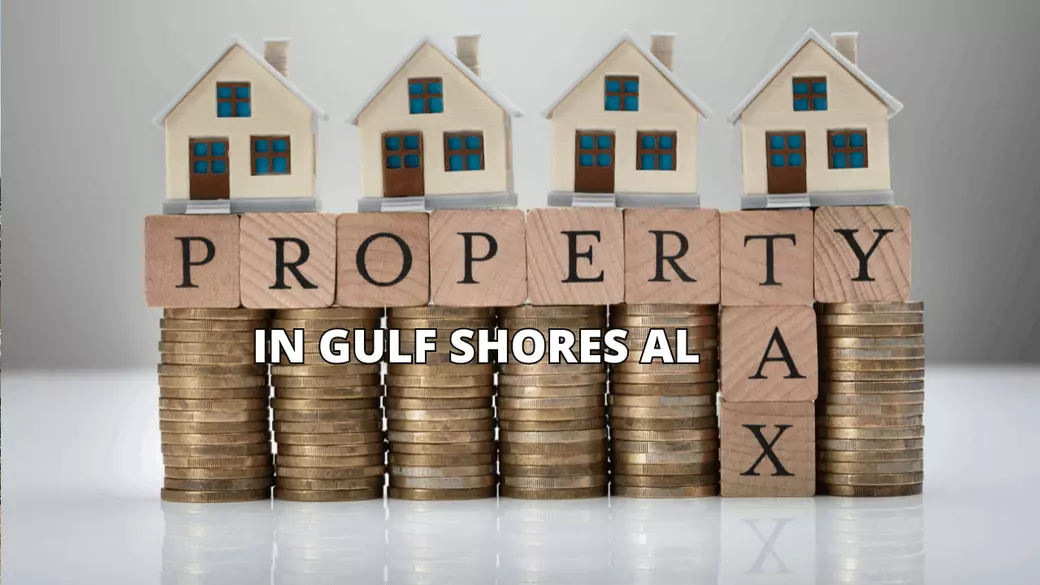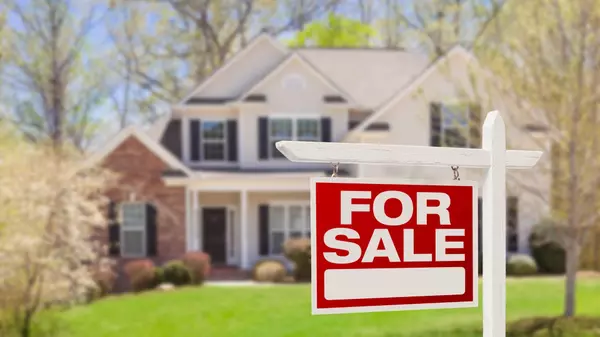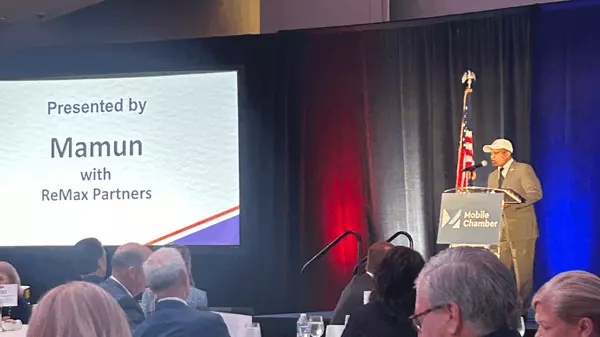How Property Taxes in Gulf Shores AL Work

How Property Taxes in Gulf Shores AL Work: A Clear Guide
Property taxes are an essential part of homeownership in Gulf Shores, Alabama. Property taxes are levied based on the value of the property and are used to fund public services such as schools, roads, and public safety.
Understanding how property taxes work is crucial for homeowners who want to budget their finances effectively.
Property assessment is the process of determining the value of a property for tax purposes. In Gulf Shores, the Baldwin County Revenue Commission is responsible for assessing the value of all properties in the county.
The assessed value of a property is calculated based on its market value, which is determined by analyzing comparable properties in the area. Once the assessed value is determined, the millage rate is applied to calculate the property tax owed.
Key Takeaways
- Understanding how property taxes work is crucial for homeowners in Gulf Shores, Alabama
- Property assessment in Gulf Shores is based on the market value of the property and is conducted by the Baldwin County Revenue Commission
- The millage rate is applied to the assessed value to calculate the property tax owed.
Understanding Property Taxes
Definition and Purpose
Property taxes are taxes imposed on real estate by the local government. They are assessed based on the value of the property and are used to fund local government services such as schools, police and fire departments, and public works projects. Property taxes are one of the main sources of revenue for local governments in Gulf Shores, AL.
The amount of property tax owed is determined by multiplying the assessed value of the property by the local tax rate.
The assessed value is the value of the property as determined by the local government, and it is usually based on the market value of the property. The tax rate is set by the local government and is usually expressed as a percentage of the assessed value.
Legal Basis
The legal basis for property taxes in Gulf Shores, AL is the Alabama Constitution and state statutes. The Alabama Constitution requires that all property be taxed in proportion to its value, and that all property be taxed at the same rate. The state statutes provide the framework for how property is assessed and how the tax rate is set.
In Gulf Shores, property taxes are collected by the Baldwin County Revenue Commission. Property taxes are due on October 1st of each year, and become delinquent after December 31st of the same year. Failure to pay property taxes can result in the property being sold at a tax sale.
Overall, understanding property taxes is essential for homeowners in Gulf Shores, AL. By knowing how property taxes work, homeowners can ensure that they are paying the correct amount of taxes and can budget accordingly.
Property Assessment in Gulf Shores
Assessment Process
In Gulf Shores, property assessment is conducted by the Baldwin County Revenue Commissioner's Office. The assessment process involves determining the value of a property based on its physical characteristics, location, and market value. The Revenue Commissioner's Office uses various methods to assess properties, including cost, income, and sales comparison approaches. The assessment is done annually, and the property owner is notified of any changes in the assessed value.
Factors Affecting Property Value
Several factors affect the value of a property in Gulf Shores. The most significant factor is the location of the property.
Properties located in desirable neighborhoods or near popular attractions tend to have higher values than those in less desirable areas. The size and condition of the property also affect its value. Larger and well-maintained properties are generally more valuable than smaller or poorly maintained ones.
Other factors that affect property value include the age of the property, the type of construction materials used, and the presence of any upgrades or renovations. Properties with newer construction materials or recent upgrades tend to have higher values than those with older materials or no upgrades.
In summary, the property assessment process in Gulf Shores involves determining the value of a property based on its physical characteristics, location, and market value. Several factors affect property value, including location, size, condition, age, and upgrades. Property owners are notified annually of any changes in the assessed value of their properties.
Tax Rates and Calculation
Determining Tax Rates
Property tax rates in Gulf Shores, AL are set by the local government and other taxing authorities, including the county, school district, and state. The total millage rate for Gulf Shores is 33.0 (0.033), which is used to calculate the amount of property tax owed. This millage rate is applied to the assessed value of the property, which is determined by the Baldwin County Revenue Commission.
Calculating Your Tax Bill
To calculate your property taxes in Gulf Shores, you need to know the assessed value of your property and the total millage rate.
The assessed value is 10% of the appraised, or market, value. For example, a home with an appraised value of $200,000 would have an assessed value of $20,000 (10% of $200,000). If that home was subject to a total property tax rate of 30 mills, the total annual property tax would be $600 ($20,000 x [30 / 1000]).
It's important to note that taxing entities, like Gulf Shores, have limits on increasing taxes, as stated under the Alabama Constitution. Tax rates can't be raised before the general public is previously notified of that intent.
Then a public hearing on any proposed hike should be conducted before any increases. Baldwin County has a property tax rate of 3.0%, which brings the absolute millage rate for residents of Mobile city to 63.5.
In summary, property taxes in Gulf Shores, AL are calculated based on the assessed value of the property and the total millage rate, which is set by the local government and other taxing authorities. The assessed value is 10% of the appraised value, and the millage rate is applied to the assessed value to determine the amount of property tax owed.
Payment of Property Taxes
Property taxes in Gulf Shores, AL are due annually and can be paid through several methods.
Payment Methods
Property owners can pay their property taxes in Gulf Shores, AL through the following methods:
- In-person: Property owners can pay their property taxes in person at the Gulf Shores City Hall located at 1905 West 1st Street, Gulf Shores, AL 36547.
- Mail: Property owners can mail their property tax payments to the following address: City of Gulf Shores, PO Box 299, Gulf Shores, AL 36547.
- Online: Property owners can pay their property taxes online through the Baldwin County Revenue Commission website.
Due Dates and Penalties
All property taxes in Gulf Shores, AL are due on October 1 of each year. Property owners who fail to pay their property taxes by December 31 of the same year will incur a penalty. The penalty amount varies depending on the length of time the payment is past due.
It is important to note that property owners who have not paid their property taxes by December 31 of the same year will have a tax lien placed on their property. The tax lien will remain in effect until the property taxes are paid in full.
Property Tax Exemptions and Relief
Eligibility for Exemptions
Residents of Gulf Shores, Alabama, may be eligible for property tax exemptions based on various criteria. One of the most common exemptions is the homestead exemption, which is available to residents who own and occupy their primary residence. The exemption reduces the assessed value of the property by a certain amount, resulting in lower property taxes. The amount of the exemption varies depending on the age and income of the homeowner.
Another exemption available to residents is the disability exemption. This exemption is available to homeowners who are permanently and totally disabled. The exemption reduces the assessed value of the property by a certain amount, resulting in lower property taxes. There is no income limitation for this exemption.
Types of Relief Programs
In addition to exemptions, Gulf Shores offers various relief programs to help residents with property taxes. One such program is the payment plan program, which allows residents to pay their property taxes in installments rather than in one lump sum. This can be especially helpful for residents who may struggle to pay their property taxes all at once.
Another relief program offered by Gulf Shores is the tax deferral program. This program allows residents who are 65 years of age or older, or who are disabled, to defer their property taxes until the property is sold or the homeowner passes away. This can be a helpful option for residents who may be on a fixed income and have difficulty paying their property taxes.
Overall, Gulf Shores offers a variety of property tax exemptions and relief programs to help residents manage their property tax burden. By taking advantage of these programs, residents can reduce their property tax bill and ensure that they are able to stay in their homes.
Appealing Tax Assessments
Grounds for Appeal
If a property owner in Gulf Shores, AL believes that their property tax assessment is too high, they have the right to appeal the assessment. There are several grounds for appealing a property tax assessment, including:
-
Incorrect Information: If there is incorrect information on the assessment, such as the size of the property or the number of bedrooms, the owner can appeal the assessment.
-
Property Damage: If the property has been damaged, such as by a natural disaster or fire, the owner can appeal the assessment to reflect the property's new value.
-
Comparable Properties: If the owner believes that the assessment is too high compared to similar properties in the area, they can appeal the assessment.
-
Excessive Assessment Increase: If the assessment has increased by an excessive amount compared to previous years, the owner can appeal the assessment.
The Appeals Process
The appeals process for property tax assessments in Gulf Shores, AL begins with the owner filing a written notice of appeal with the Baldwin County Revenue Commission within 30 days of the assessment notice. The owner must include a copy of the assessment notice and any supporting documentation with the notice of appeal.
The next step in the appeals process is a hearing before the Baldwin County Board of Equalization. The board will review the assessment and any supporting documentation provided by the owner. If the board determines that the assessment is too high, they will adjust the assessment accordingly.
If the owner is not satisfied with the decision of the Baldwin County Board of Equalization, they can appeal to the Alabama Tax Tribunal. The owner must file a written notice of appeal with the tribunal within 30 days of the board's decision. The tribunal will review the assessment and any supporting documentation provided by the owner and make a final decision on the assessment.
It is important for property owners in Gulf Shores, AL to understand the grounds for appeal and the appeals process for property tax assessments. By appealing an assessment if necessary, owners can ensure that they are paying a fair amount of property taxes based on the value of their property.
Impact of Property Taxes
On Homeowners
Property taxes in Gulf Shores, AL have a direct impact on homeowners. The amount of property tax paid depends on the assessed value of the property. Generally, the higher the assessed value, the higher the property tax. Homeowners should keep in mind that property taxes are due on October 1st and become delinquent after December 31st of each year [1].
However, property taxes also provide homeowners with benefits such as better schools, improved infrastructure, and increased property values. Homeowners can also take advantage of certain exemptions such as the Homestead Exemption, which reduces the assessed value of a primary residence by up to $5,000 [4].
On the Community
Property taxes also have an impact on the community as a whole. The revenue generated from property taxes is used to fund essential services such as public schools, law enforcement, and road maintenance. Additionally, property taxes contribute to the overall economic growth of the community by funding infrastructure projects that attract new businesses and residents to the area.
In Gulf Shores, there have been recent discussions about increasing the lodging tax rate in order to generate additional revenue for the city [2].
While some businesses and vacation rental operations have opposed this increase, the city council has argued that it is necessary to fund important projects and services for the community.
Overall, property taxes play a crucial role in the functioning of Gulf Shores, AL. While they may seem like a burden to some homeowners, they provide necessary funding for essential services and contribute to the overall growth and development of the community.
Frequently Asked Questions
What is the process for calculating property taxes in Gulf Shores, Alabama?
The total millage rate for Gulf Shores is 33.0 (0.033). The property taxes are calculated by multiplying the assessed value of the property by the millage rate. The assessed value is determined by the Baldwin County Revenue Commission.
How can someone look up property tax information in Baldwin County?
To look up property tax information in Baldwin County, residents can visit the Baldwin County Revenue Commission website. The website provides information about property tax assessments, exemptions, and payment options.
Are there any property tax exemptions available for residents of Gulf Shores, AL?
Yes, there are property tax exemptions available for residents of Gulf Shores, AL. The most common exemptions are for homeowners who are 65 years or older, disabled veterans, and disabled individuals. The exemptions reduce the assessed value of the property and, in turn, lower the property tax bill.
What is the average property tax rate for homeowners in Gulf Shores, Alabama?
The average property tax rate for homeowners in Gulf Shores, Alabama, is 33.0 mills. The highest millage rate is for schools, which is 10.0 mills. The millage rate for the city of Gulf Shores is 5.0 mills, and the millage rate for the county is 18.0 mills.
Can property taxes be paid online in Alabama, and if so, how?
Yes, property taxes can be paid online in Alabama through the Alabama Department of Revenue's online filing system, My Alabama Taxes (MAT). Residents can access the system by visiting https://myalabamataxes.alabama.gov. The system allows residents to pay their property taxes using a credit card or an electronic check.
What is the frequency of property tax payments in the state of Alabama?
In the state of Alabama, property taxes are due on October 1 and become delinquent after December 31 of each year. Property owners have the option to pay their property taxes in two installments. The first installment is due on October 1, and the second installment is due on April 1 of the following year.
Categories
- All Blogs (32)
- Amusement and Entertainment (1)
- 2024 Presidential Election (1)
- Affordable Living (3)
- Baldwin County News (2)
- Baldwin County Real Estate (3)
- Beaches and Coastal Attractions (1)
- Best Neighborhoods for Snowbirds (2)
- Buying A Vacation Home in AL (3)
- Community and Culture (5)
- Community Events (3)
- Community Spotlights (4)
- Cost of Living in Gulf Shores (4)
- Economic Development (2)
- Family-Friendly Destinations (2)
- Gardens and Nature (1)
- Gulf Shores Neighborhoods (4)
- Gulf Shores VS Near by Cities (1)
- Historical and Cultural Sites (1)
- Housing Market Trends (1)
- Investing (2)
- Living in Gulf Shores AL (8)
- Local Business News (2)
- move to Gulf Shores AL (1)
- Moving to Gulf Shores AL (7)
- Property Taxes (1)
- Pros & Cons (5)
- Real Estate (1)
- Relocating to Gulf Shores AL (10)
- Retiring in Gulf Shores AL (7)
- Sports & Recreation (1)
- Travel & Leisure (2)
Recent Posts












